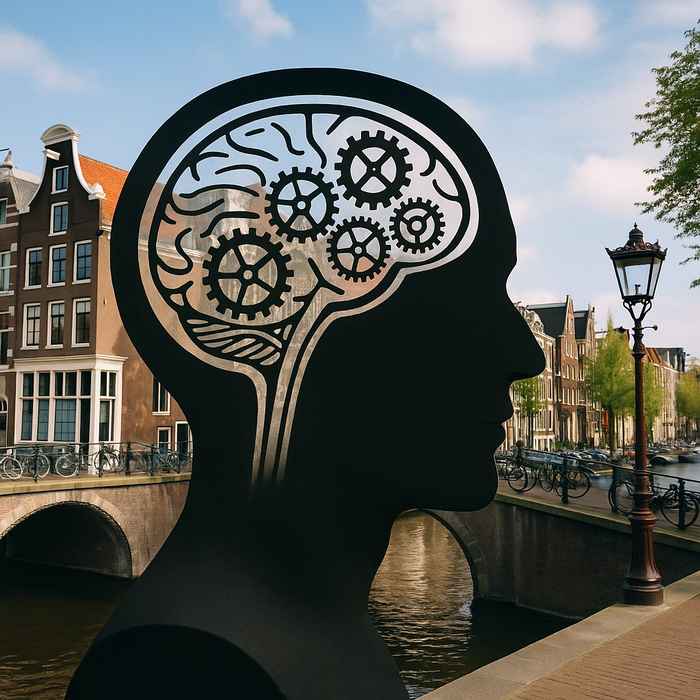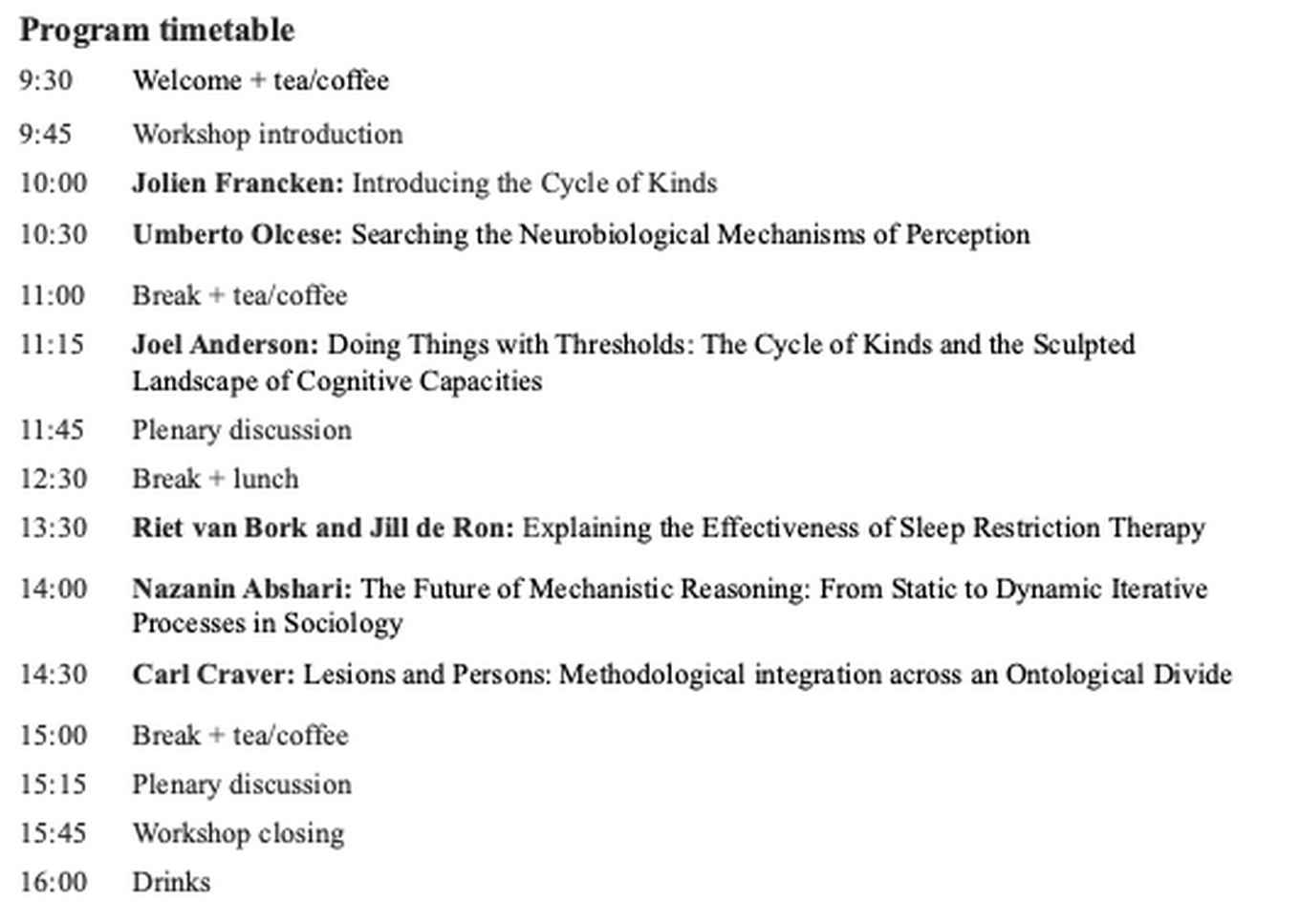Mechanistic explanation and scientific progress in neuroscience and beyond
-with prof. dr. Carl Craver
- Date
- 25 August 2025
- Time
- 09:30 -16:00
- Location
- Bushuis/Oost-Indisch Huis
- Room
- Humanities Labs workshop space

Neuroscience aims to uncover the neural mechanisms underlying cognitive capacities such as memory, language and consciousness. In the past two decades, it has focused on developing sophisticated brain measurement techniques, data analyses and experimental designs to identify neural mechanisms at different biological levels. In parallel, in the field of philosophy of (neuro)science researchers have concentrated on elaborating what ‘mechanistic explanation’ actually means and what is required for good explanations in neuroscience.
In a collaboration with prof. Craver (Francken, Slors & Craver, 2022) we built upon earlier work on mechanistic explanation and proposed a novel model of scientific progress in cognitive neuroscience, which we have called ‘the Cycle of kinds’. Typically, neuroscientists assume that by studying the neural mechanisms of e.g., memory in the brain we will learn how to (re)define ‘memory’ and how to delineate it from other cognitive capacities. We argue that this procedure is not as straightforward as it seems, because three methodological and conceptual choices must be made: (i) how to operationalize the cognitive capacity at issue, (ii) how to determine the fineness of grain with which underlying neural mechanisms can or must be described, and (iii) how to distinguish the mechanism from its background conditions. These choices, we argue, are interdependent. Consequently, we propose that making progress on the conceptualization of cognitive capacities and identification of their neural mechanisms happens in an iterative, cyclic manner, similar to models of ‘epistemic iteration’ in other fields of science (Chang, 2004; Tal, 2013).

Our paper sparked a lot of discussions by both philosophers and neuroscientists. In this workshop we would therefore like to take the Cycle of kinds as a starting point to analyse mechanistic explanation and scientific progress. We also want to go beyond neuroscience and discuss how models of explanation and scientific progress in this field compare to models in related scientific disciplines, such as biology, psychology and the social sciences.
By bringing together researchers interested in both theoretical and empirical work on mechanistic explanation and scientific progress, this workshop aims to strengthen connections between philosophers of science and (neuro)scientists. More generally, by exploring the applicability and relevance of fundamental concepts in philosophy of science (mechanistic explanation and scientific progress) in academic fields beyond philosophy, we hope to promote and demonstrate how a philosophical approach can benefit empirical research practices.
Program
The workshop will include 30-minute presentations by invited speakers as well as multiple plenary discussion sessions, to allow for integration and application of the ideas presented in the talks.
Confirmed speakers: Carl Craver (Washington University, St. Louis, US), Nazanin Abshari (Radboud University), Joel Anderson (Utrecht University), Riet van Bork and Jill de Ron (University of Amsterdam), Umberto Olcese (University of Amsterdam), Jolien Francken (University of Amsterdam)

Registration
The workshop will be free of charge and will include lunch, snacks, tea and coffee during the workshop. We cannot cover travel or accommodation expenses.
